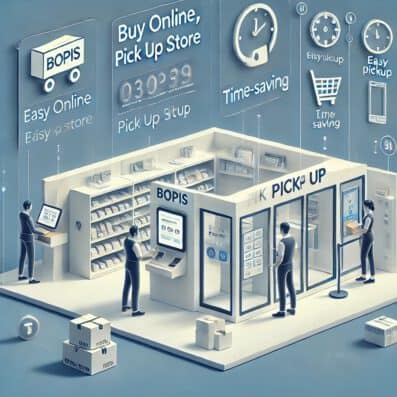In the ever-evolving world of online retail, choosing the right e-commerce platform is crucial for clothing brands aiming to thrive.
Whether you’re a boutique just starting or an established brand looking to scale, the right platform can make all the difference.
This guide explores some of the best e-commerce platforms for clothing, analyzing their features, benefits, and ideal use cases.
1. Shopify
Overview: Shopify is one of the most popular e-commerce platforms globally, renowned for its ease of use and robust features tailored for clothing brands.
Key Features:
- User-Friendly Interface: Intuitive dashboard that simplifies store management.
- Customizable Themes: A wide range of clothing-specific themes that are mobile-responsive.
- Inventory Management: Efficient tools for tracking stock, including options for multiple locations.
- Integrated Payment Processing: Supports various payment gateways including Shopify Payments.
- Marketing Tools: Includes SEO features, email marketing integrations, and social media tools.
Pros:
- Easy setup with a variety of themes and apps.
- Scalable for businesses of all sizes.
- Strong customer support.
Cons:
- Monthly fees can add up, especially with add-ons.
- Transaction fees if not using Shopify Payments.
Best For: Clothing brands looking for a scalable, user-friendly platform with extensive support.
Links:
2. BigCommerce
Overview: BigCommerce is a robust platform known for its built-in features and scalability, making it a strong contender for clothing brands.
Key Features:
- Advanced SEO Capabilities: Built-in SEO features to enhance visibility.
- Multi-Channel Selling: Integrates with marketplaces like Amazon and eBay.
- Flexible Shipping Options: Supports various shipping methods and carriers.
- No Transaction Fees: Unlike some competitors, BigCommerce does not charge transaction fees.
Pros:
- Comprehensive features without needing many third-party apps.
- No transaction fees.
- Strong scalability for growing brands.
Cons:
- Can be complex for beginners.
- Design customization might require developer assistance.
Best For: Medium to large clothing brands that need advanced features and scalability.
Links:
3. WooCommerce
Overview: WooCommerce is a popular, free-of-charge WordPress plugin that turns a WordPress site into a fully functional e-commerce store, ideal for clothing retailers who want flexibility and control.
Key Features:
- Customization: Extensive customization options through WordPress themes and plugins.
- Cost-Effective: Free to use with optional paid extensions.
- Wide Range of Plugins: Thousands of plugins to extend functionality.
- SEO-Friendly: Built on WordPress, which is known for its strong SEO capabilities.
Pros:
- Highly customizable.
- Cost-effective, especially for those already using WordPress.
- Large community and extensive documentation.
Cons:
- Requires more technical knowledge than hosted solutions.
- Additional costs for premium themes and plugins.
Best For: Clothing brands that already use WordPress or need a high level of customization.
Links:
4. Magento
Overview: Magento, an Adobe company, offers a powerful and flexible e-commerce solution ideal for large clothing brands with complex needs.
Key Features:
- Customizable: Extensive customization options and flexibility.
- Scalability: Suitable for large catalogs and high-volume stores.
- Advanced Features: Includes advanced SEO, marketing tools, and multi-store capabilities.
- Open Source Option: Magento Open Source is available for those who prefer more control.
Pros:
- Highly customizable and scalable.
- Strong community support and extensive features.
Cons:
- Requires technical expertise to set up and manage.
- Higher cost for Magento Commerce version.
Best For: Large clothing brands with complex requirements and technical resources.
Links:
5. Wix eCommerce
Overview: Wix is known for its drag-and-drop website builder, and its e-commerce platform is no different, offering a straightforward solution for clothing retailers.
Key Features:
- Drag-and-Drop Builder: Easy to use, even for those with no coding skills.
- Design Flexibility: A wide range of customizable templates for clothing stores.
- Integrated Marketing Tools: Includes email marketing and SEO features.
- Affordable Pricing: Competitive pricing with various plans.
Pros:
- User-friendly with an intuitive interface.
- Affordable and good for smaller stores.
Cons:
- Less advanced features compared to other platforms.
- Limited scalability for very large stores.
Best For: Small to medium-sized clothing brands looking for an easy-to-use platform with affordable pricing.
Links:
6. Squarespace
Overview: Squarespace is known for its sleek design templates and is a great option for clothing brands focusing on high-quality visuals and branding.
Key Features:
- Design Quality: Beautiful, professionally designed templates.
- Built-In Features: Includes essential e-commerce functionalities without needing additional plugins.
- Content Management: Easy integration of blog and content features to enhance brand storytelling.
- Mobile Optimization: All templates are mobile-friendly.
Pros:
- Excellent design quality and ease of use.
- Integrated with marketing tools and analytics.
Cons:
- Less flexibility for advanced customization.
- Higher cost for advanced features.
Best For: Clothing brands that prioritize design and visual appeal with moderate e-commerce needs.
Links:
Conclusion
Choosing the right e-commerce platform for your clothing brand depends on your specific needs, such as the size of your business, your budget, and your technical expertise.
Shopify and BigCommerce are excellent for businesses looking for robust features and scalability, while WooCommerce and Magento offer extensive customization for those who need more control. Wix and Squarespace are ideal for smaller brands or those focused on design.
Evaluate each platform based on your priorities to ensure you select the best option for your clothing store’s success.
Benjamin Shemesh is an ecommerce enthusiast and a digital marketing expert.
He loves surfing the ocean
